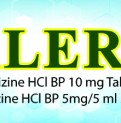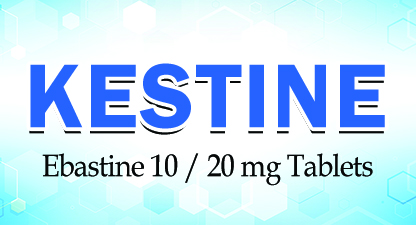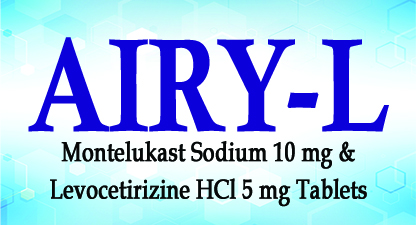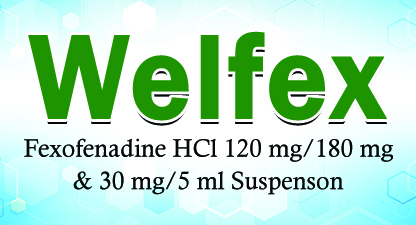ALERT
Cetirizine is an antihistamine that reduces the natural chemical histamine in the body. Histamine can produce symptoms of sneezing, itching, watery eyes, and runny nose. It is used to treat cold or allergy symptoms such as sneezing, itching, watery eyes, or runny nose. Cetirizine is also used to treat itching and swelling caused by hives.
- Categories : Anti-Allergic
- Share Now :
Generic Name: Cetirizine HCl
Therapeutic Category: Anti-allergy
Pharmacological Class: Selective H1 antagonist (Second Generation)
Composition: Alert Tablet
Each film coated tablet contains Cetirizine HCl BP 10 mg.
Alert Syrup
Each 5 ml contains Cetirizine HCl BP 5 mg.
Pregnancy Category: B
Presentation: Alert Tablet
Available in the pack size as 10 tablets X 15 blisters
Alert Syrup
Available in 30 ml with a measuring cap
Mechanism of Action
Cetirizine is a non-sedating antihistamine that blocks histamine (H-1) receptors on cells and thus prevents activation of H1 receptor-containing cells by histamine. Unlike the first generation antihistamines, cetirizine and other second-generation antihistamines do not readily enter the brain from the blood, and, therefore, they cause less drowsiness. Cetirizine may cause more drowsiness than other second generation antihistamines.
Indications
- Chronic Idiopathic Urticaria
- Perennial Allergic Rhinitis (PAR)
- Pollen Allergy
- Seasonal Allergic Rhinitis (SAR)
- Upper respiratory tract hypersensitivity reaction (site unspecified)
- Rhinovirus infection
- Kimura’s Disease*
Dosage
Route of administration: Oral
Adult: 10 mg once a day
Child: >6 months and <6 years: 5 mg once daily.
Pharmacokinetics
Absorption: Well absorbed with bioavailability >70%
Metabolism: Hepatic (minimum metabolism)
Protein binding: Approximately 88-96%
Route of elimination: Urine (70-85%), Feces (10-13%)
Half-life: 8.3 hours
Adverse Effects
Common side effects are: dry mouth, nausea, headache, fatigue, jitteriness*, and sore throat.
Cetirizine may cause more drowsiness than other second generation antihistamines but is less sedative than first generation antihistamines.
Contraindications
ALERT is contraindicated in the following situations:
- Hypersensitivity to Cetirizine or any of its ingredients
- Urinary retention*
- Closed-angle glaucoma
Precautions
- While using machinery or carrying our heavy operations, driving
- Patients > 65 years
- Hepatic or Renal impairment
Interactions
- There is a possibility of a drug interaction between cetirizine and theophylline.
- Any type of tranquilizer, sedative, or sleep aid when taken along with cetirizine may amplify the sedation.
- Avoid alcohol
*Terminologies:
Kimura’s Disease: a benign rare chronic inflammatory disorder which predominantly affects the lymph nodes and soft tissue





